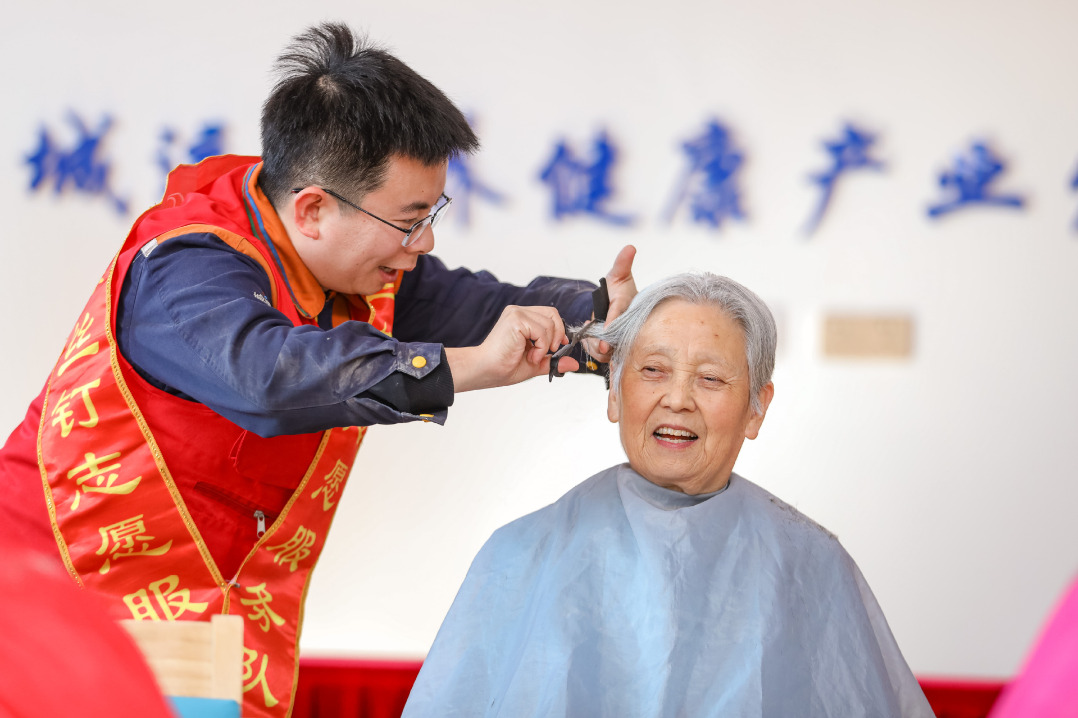Revision of language law seeks to bolster cultural confidence
Amendment proposes govt sites use recognized spoken and written forms

Chinese lawmakers began reviewing a draft amendment to the Law on Standard Spoken and Written Chinese Language to forge a strong sense of community for the nation and enhance cultural confidence.
The draft revision to the law was submitted on Monday to the ongoing session of the Standing Committee of the National People's Congress for its first reading.
The use of national standard spoken and written Chinese language should be conducive to cultivating and promoting core socialist values, inheriting and developing fine Chinese culture and building a common spiritual home for the Chinese people, the draft said.
The language law, which took effect in 2001, sets putonghua, or Mandarin, and simplified Chinese characters as the standard spoken and written forms of Chinese and China's official language.
Luo Shugang, director of the Education, Science, Culture and Public Health Committee of the National People's Congress, said the national standard spoken and written Chinese language is formed through communication and exchanges among different ethnic groups. It is the basic element of Chinese culture and an important symbol of the country, just like the national flag and national anthem, he said.
In the 24 years since the law has been in place, historic achievements have been made in popularizing the standard spoken and written language, with over 80 percent of the population now speaking Mandarin and more than 95 percent knowing and using simplified characters, he said.
However, the popularization work remains uneven. The use of standard spoken and written Chinese language in public service, online spaces and foreign communication needs further regulation, and there are difficulties in keeping pace with advancements in informatization, digitization and artificial intelligence. Thus, amendments of the law are needed to solve such pressing issues, he said.
The draft proposes strengthened regulations on language use in cyberspace, specifying that internet platforms operated by the government or providing public services must use the standard spoken and written Chinese language in accordance with national norms and standards.
It also strengthens the protection of the right to learn and use the standard language, stipulating that "no organization or individual shall obstruct citizens from learning and using the standard spoken and written Chinese language."
It is also stipulated that those who obstruct others from learning and using national standard language or violate the law in other ways could face public security administration penalties or criminal liability.
Regarding usage rules, the draft revision standardizes the use of foreign languages, clarifying that for international exhibitions and conferences held within China where the use of foreign languages is necessary, the standard spoken and written Chinese language should be used simultaneously.
The draft revision further refines regulations on language use in public service industries, public spaces and facilities, and online audiovisual programs.
- China's milu deer population grows 200-fold since 1985
- Global experts praise China's ecological achievements at a seminar in Beijing
- Global businesses gather at Hong Kong intl lighting fair, tech light expo
- Police probe into suspected 'Taiwan independence' secessionist a just move to safeguard national unity: spokesperson
- Police probe 'Taiwan independence' separatist Shen Pao-yang over suspected crime of secession
- Senior CPC official urges full promotion of Party plenum's guiding principles





































